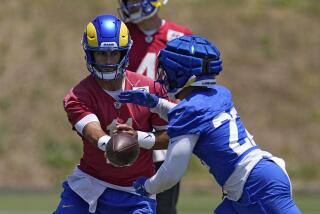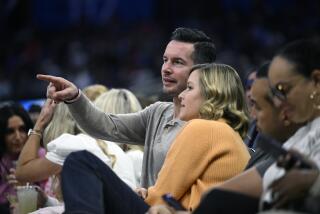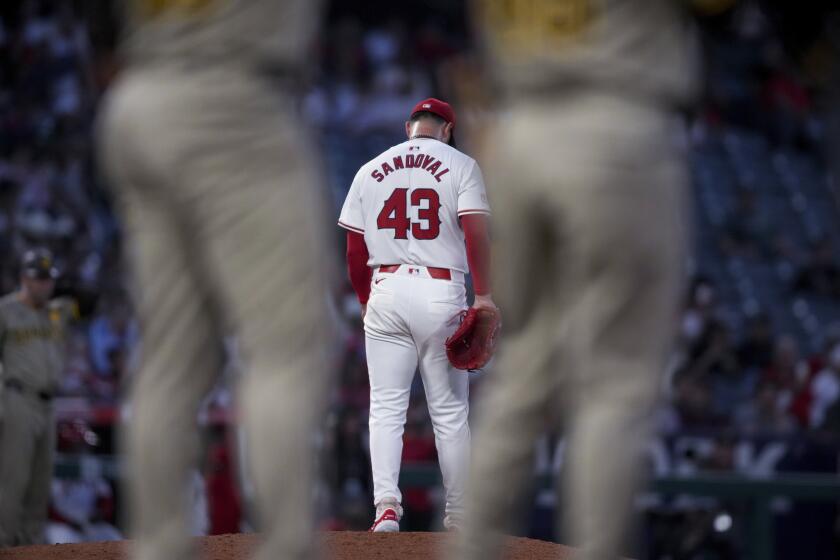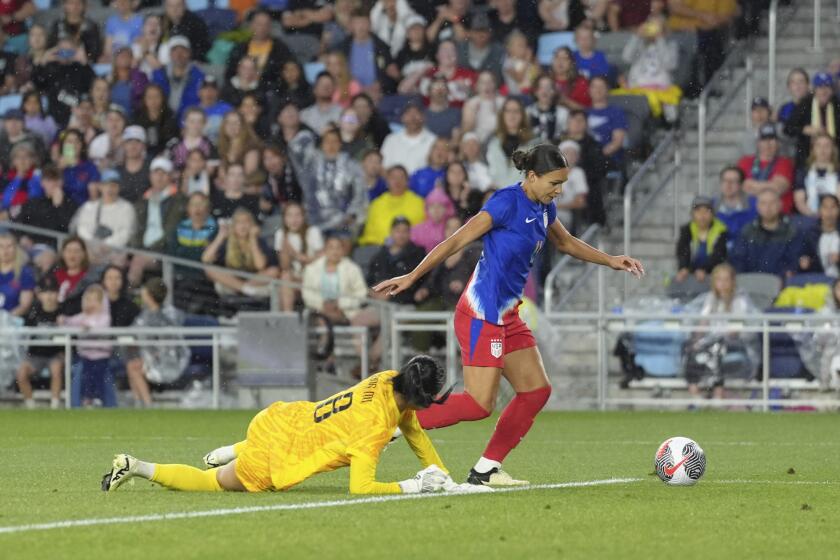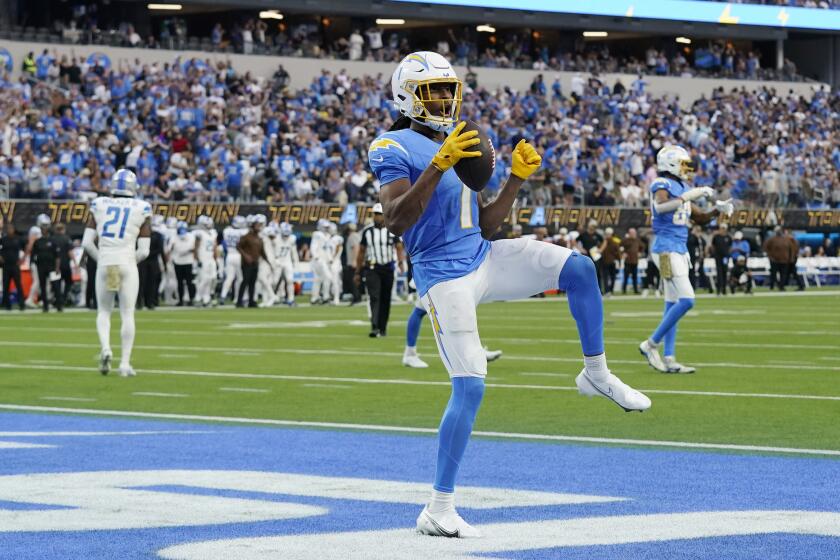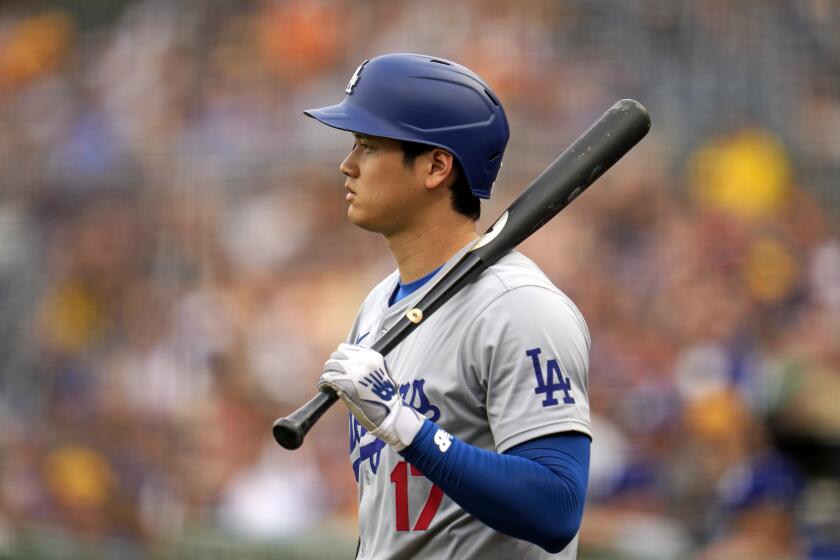BASEBALL / ROSS NEWHAN : Closing Door on Japan Isn’t a Smart Play
There is more at stake than protectionism and Japan-bashing as baseball weighs the possible sale of the Seattle Mariners to a group headed by the president of Nintendo Co. of Japan.
After Commissioner Fay Vincent reaffirmed Thursday that major league ownership is restricted to North Americans, the major league ownership committee met by phone Friday and announced through the commissioner’s office that the situation rests with Mariner owner Jeff Smulyan.
Has the policy changed?
Is there a possibility that Super Mario Bros., Nintendo’s most popular video game, will be featured on the Kingdome scoreboard between innings?
That remains hazy, but this much is clear: By maintaining a jingoistic policy regarding ownership, baseball is creating a public relations nightmare and a clear case of double standard. Is it not a double standard to restrict ownership while:
--Allowing Japanese investors to help sustain the minor leagues through the ownership of teams in Vancouver, Visalia, Salinas and Birmingham?
--Profiting from the sale of licensing-bureau items in Japan?
--Employing players from Australia, the Netherlands, Venezuela, the Dominican Republic and several other countries, including, at times, Japan?
--Exploiting new markets and talent through increased emphasis on international clinics and programs, with the ultimate aim of making baseball a global sport?
And, of course, there is the ultimate double standard and public relations nightmare: Advocating minority hiring in the front office and on the field, but not at the ownership level, which smacks of the racism that Vincent and others have attempted to disavow.
Asked if he was concerned about that aspect, Dodger President Peter O’Malley, a member of the ownership committee, declined to comment and said he stood behind a statement he issued Thursday.
In that statement, he said it was baseball’s preference to have resident ownership and local involvement.
The group attempting to buy the Mariners for $100 million is called the Baseball Club of Seattle and includes representatives of some of that area’s top corporations. At a news conference Thursday, the group stressed that the Nintendo executives, who would own 60%, were invited to invest and that their investment represented community spirit.
If the deal falls through or is disallowed, it is almost certain that Smulyan will take the club to Tampa-St. Petersburg, Fla., after the 1992 season or sell it to Florida investors.
The 120-day period during which he is restricted to local offers, by terms of his lease, ends in March. It is unlikely that the Seattle area can produce another group willing to meet the $100-million asking price.
Some believe that baseball will stick to its ownership policy as a way to bring an end to the history of problems in Seattle and enable Smulyan or someone else to move the club to St. Petersburg’s domed stadium.
In that, however, there is also a public relations risk, for Seattle probably would bring legal action, claiming that there was a legitimate local group that met the lease requirements and that baseball’s policy is clearly discriminatory.
Some also believe that the baseball policy is designed as a payback for Japan’s refusal to allow Americans to buy into Japanese clubs, although there has never been a confirmed offer by an American investor.
There has also never been a definitive explanation of the reasons for baseball’s policy. In other words, Vincent has implied, it’s America’s game, the same game that he and other Americans are attempting to sell worldwide.
The same game that survived Charles Finley, George Steinbrenner and a long list of other questionable American owners whose trade practices may have seemed unfair to their fans.
Is baseball such a last sacred bastion that a little Japanese technology wouldn’t help?
More to Read
More to Read
More to Read
Get our high school sports newsletter
Prep Rally is devoted to the SoCal high school sports experience, bringing you scores, stories and a behind-the-scenes look at what makes prep sports so popular.
You may occasionally receive promotional content from the Los Angeles Times.

